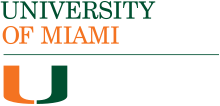Founded in 1925, the University of Miami is a private research university nestled in the vibrant Coral Gables, Florida. Often referred to as "The U" or "UM," it has grown from a small regional school to a center of learning spread across a 239-acre main campus with a diverse student body of over 17,000 and a faculty of esteemed scholars and researchers. The University offers a wide array of undergraduate, graduate, and professional programs through its 12 schools and colleges.
The University of Miami distinguishes itself with several exclusive aspects that enhance its educational offerings and research prowess. Unique to the institution is the Rosenstiel School of Marine and Atmospheric Science, a leading-edge center dedicated to the study of oceanic and atmospheric sciences in close proximity to the Florida Keys and the Everglades. Additionally, the Frost School of Music stands out with its innovative curricula, such as the Bruce Hornsby Creative American Music Program, fostering a blend of study and practical performance experience. UM's Bascom Palmer Eye Institute is another point of pride, having been consistently ranked as one of the nation's top eye hospitals.
Acknowledging the University's positive contributions, it has numerous accolades and highly regarded programs. The University of Miami Health System provides cutting-edge patient care and affords students unparalleled opportunities for medical training and research. Moreover, the School of Law's Intensive Litigation Skills Program has been lauded for its comprehensive experiential learning, propelling UM graduates to the forefront of legal practice. In community outreach, the 'Cane Angel Network' exemplifies UM's commitment to cultivating entrepreneurship and economic development by connecting alumni investors with new ventures from the university's ecosystem.
However, challenges do persist at the University of Miami. Increasingly, like many private universities, UM faces concerns over the cost of attendance, which might restrict access for less affluent students despite the financial aid offered. Moreover, some have critiqued the University's expansion initiatives, suggesting that its building projects could strain local infrastructures and disrupt neighboring communities. As UM continues to evolve, maintaining a balance between growth, community integration, and preserving the quality of life for both students and local residents remains an ongoing challenge.



